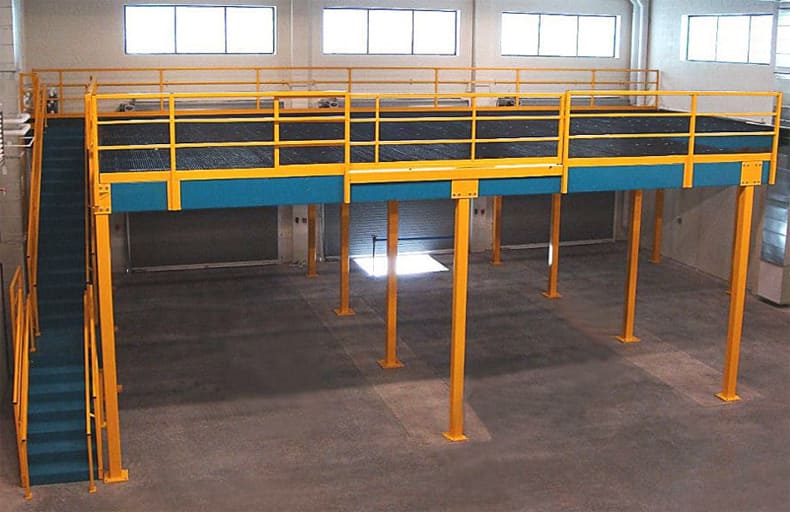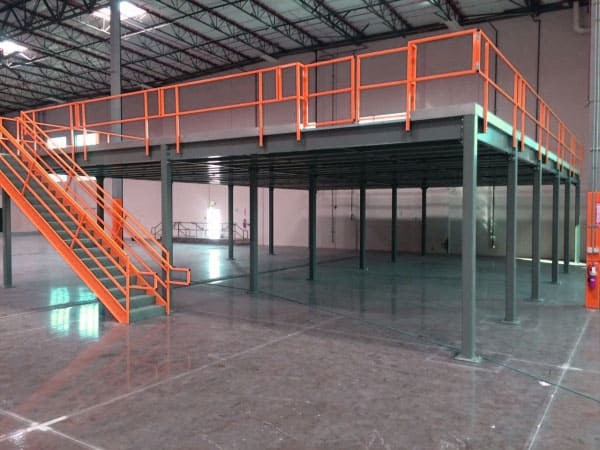
COMMERCIAL MEZZANINE FLOOR PLATFORM
In today's competitive business landscape, maximizing space utilization has become a crucial element in optimizing operational efficiency. Commercial mezzanine floor platforms have emerged as a versatile and innovative solution to address this challenge. These platforms provide businesses with the opportunity to make the most of their vertical space, offering numerous benefits ranging from increased storage capacity to improved workspace organization. This essay explores the concept and advantages of commercial mezzanine floor platforms, shedding light on their relevance in modern commercial settings.
Understanding Commercial Mezzanine Floor Platforms
A commercial mezzanine floor platform is an intermediate level or additional floor constructed within an existing building, typically situated between the ground floor and ceiling. These platforms are made from a variety of materials, including steel, aluminum, and wood, and are designed to support specific commercial activities. They are often customizable to fit the unique needs and space constraints of individual businesses, making them a versatile solution for various industries.
Advantages of Commercial Mezzanine Floor Platforms
Space Optimization:
One of the primary benefits of mezzanine floor platforms is their ability to maximize space. Businesses can effectively double their usable floor area without expanding the building's footprint, a particularly valuable advantage in high-cost real estate markets. This additional space can be utilized for various purposes, such as storage, offices, production, or retail displays.
Cost-Effective Expansion:
Compared to constructing a new building or relocating to a larger facility, installing a mezzanine floor is a cost-effective way to expand your workspace. The initial investment is considerably lower, and the construction process is generally faster and less disruptive to ongoing operations.
Improved Storage Capacity:
Mezzanine platforms are commonly used to enhance storage capacity. Warehouses, distribution centers, and retail outlets can benefit significantly from the added storage space, allowing them to efficiently manage inventory and reduce congestion on the main floor.
Enhanced Productivity:
Mezzanines can serve as dedicated workspaces, providing employees with a quiet, organized, and separated environment. This can lead to improved productivity, as employees can focus on their tasks without distractions from the main floor.
Customizability:
Mezzanine platforms are highly customizable to meet the specific requirements of different businesses. They can incorporate features such as safety railings, access points, and modular structures that can be easily adapted or expanded as needed.
Compliance and Safety:
Safety standards and building codes are typically adhered to during mezzanine construction. This ensures that the platform is structurally sound, safe for use, and compliant with local regulations, contributing to a secure working environment.
Sustainability:
Utilizing mezzanine platforms can be a sustainable choice, as it often negates the need for additional construction that consumes more resources and energy. It also promotes efficient use of existing spaces, reducing the ecological footprint of the business.
Commercial mezzanine floor platforms represent a practical and innovative solution for businesses seeking to optimize their operational efficiency and space utilization. These platforms offer a range of benefits, including cost-effective expansion, improved storage capacity, enhanced productivity, and customizability. In an era where efficient space management is essential for business success, commercial mezzanine floor platforms have proven their worth as a valuable addition to modern commercial settings. By considering the advantages they offer, businesses can make informed decisions about implementing mezzanine solutions to meet their specific needs and goals.










